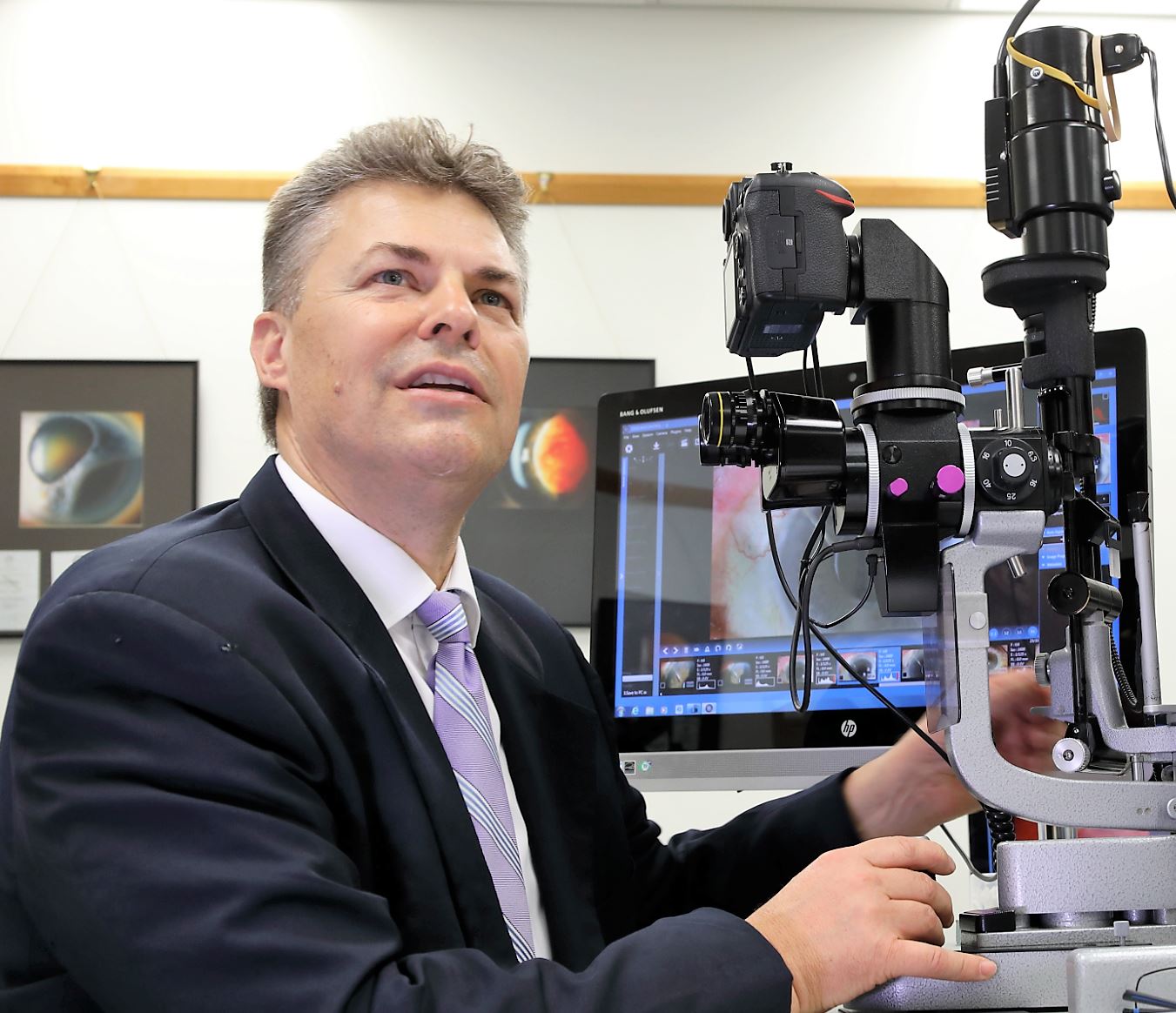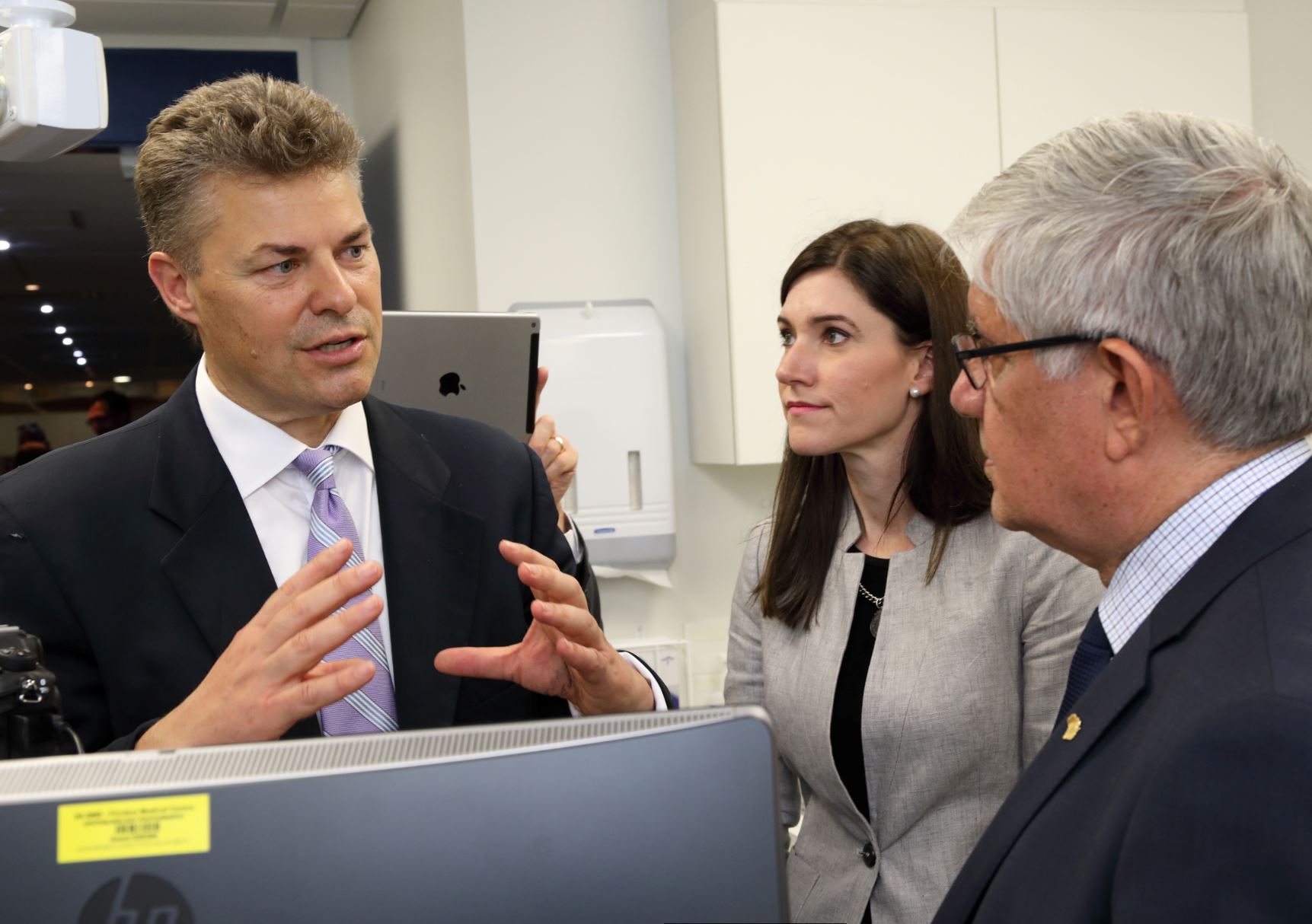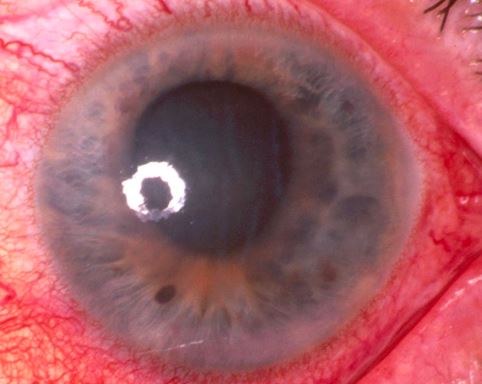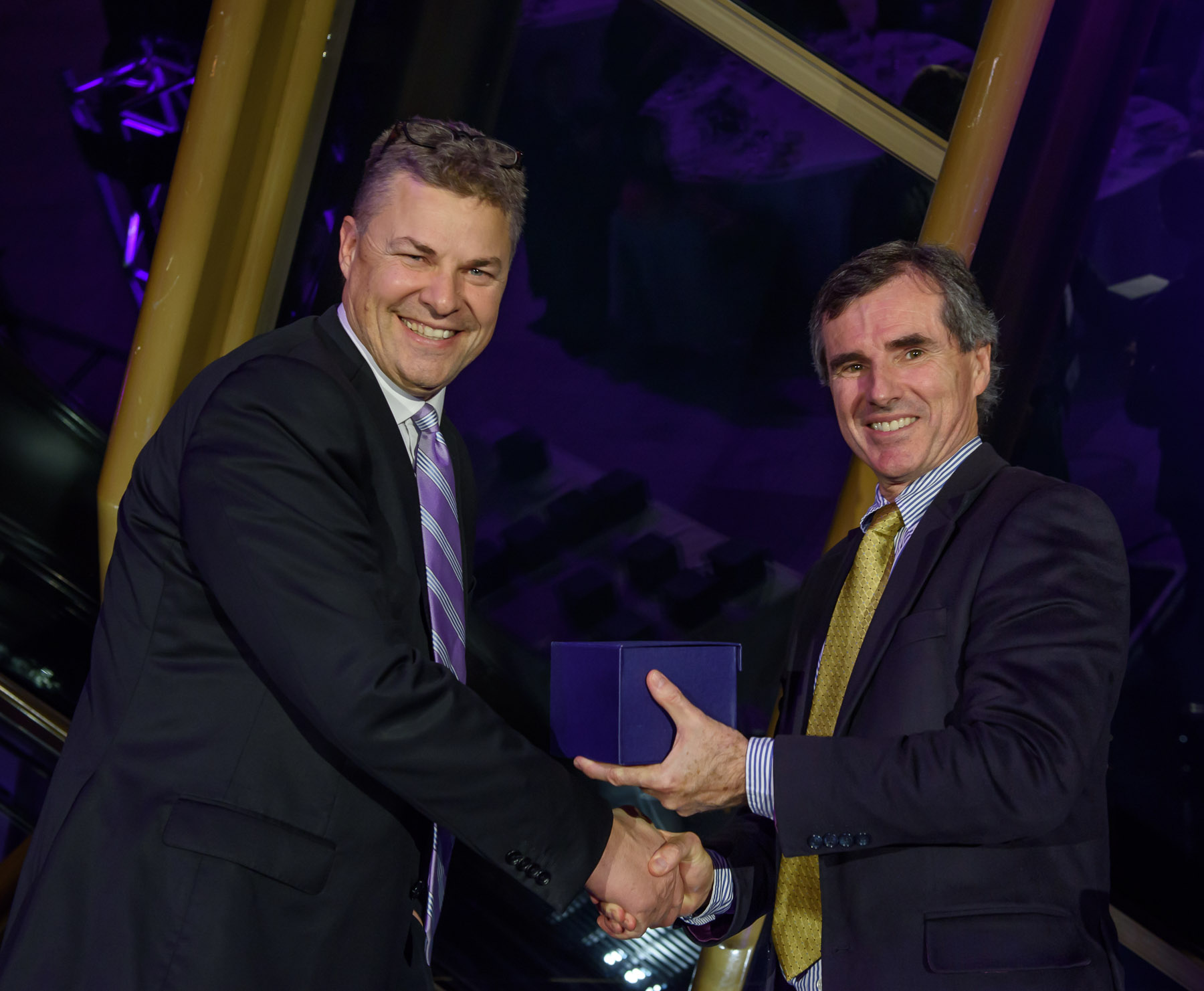
Flinders is at the forefront of finding solutions for glaucoma, the leading cause of irreversible blindness worldwide.
By 2020, glaucoma will affect 80 million people worldwide, and within Australia over the next decade, the total cost of primary open angle glaucoma is expected to total $4.3 billion.
Leading South Australian ophthalmologist, Flinders University Professor Jamie Craig, is part of an international campaign to find the cause and possible cure for the complicated eye disease.
The Flinders clinician and scientist has been involved in research attracting more than $27 million in funding in the past 10 years, including a major $9.46 million National Health and Medical Research Council (NHMRC) Program Grant to find genetic solutions for glaucoma.
Professor Craig has just received a 2017 NHMRC Research Excellence Award for ‘Top Ranked Program Grant’ at the annual research excellence awards in Canberra (27 June 2018).
His pioneering work includes establishing the Australian and New Zealand Registry of Advanced Glaucoma which has been critical to Australia leading the world in discovery and translation of glaucoma genetics – particularly so patients can be diagnosed and treated before they start to lose vision. Information from the registry from advanced glaucoma patients is filling in a giant puzzle to identify the genes associated with the disease in its many forms.
“With [our research], and applying existing and new treatments, we hope to prevent glaucoma sufferers of all ages from missing out on the opportunity to drive, read and recognize their loved ones,” Professor Craig says, adding blindness is one of the most feared conditions next to cancer and dementia.
NHMRC Chief Executive Officer Professor Anne Kelso says every scientist honoured in the annual awards “presented the highest quality research application for their grant category as determined by independent expert review panels”.
“Considering NHMRC received over 5,400 applications last year, these are truly great achievements,” Professor Kelso says.
An NHMRC Practitioner Fellow, Professor Craig is director of the Flinders Centre for Ophthalmology, Eye and Vision Research.

Specialising in glaucoma and medical retinal disease, Professor Craig’s research is helping to unlock the genetic causes of eye disease and what makes people more susceptible to eye disease than others. He is particularly interested in glaucoma blindness, including in children.
Glaucoma is a group of eye diseases in which the optic nerve at the back of the eye is slowly destroyed. In most people this damage is due to an increased pressure inside the eye as a result of a build-up of fluid.
Sight loss is usually gradual and a considerable amount of peripheral vision may be gone before people are aware of any problem.
“Glaucoma is a degenerative eye disease which can cause gradual blindness because of high eye pressure,” he says.
“It affects more than 300,000 Australians but as many as half do not know they have it until irreversible vision loss has occurred.”
To complicate matters, about 3% of glaucoma cases are explained by inherited errors in a particular gene called myocilin. These cases characteristically have very high eye pressures which develop at a younger age than non-genetic glaucoma, causing challenges for the early identification of the disease.
Professor Craig was among more than NHMRC research excellence awards, including University of SA Professor Shudong Wang, who received the Top Ranked Development Grant for development of a novel anti-cancer treatment.
“South Australian researchers are leading the world in some of the leading areas of medical and health research, not least in many laboratories and clinics at the Flinders precinct in the southern suburbs of Adelaide,” says Professor Craig.
“We are excited here at Flinders to be involved in a far-reaching opportunity to translate the genetic determinants of glaucoma into better diagnosis and treatment in future.”
This current NHMRC glaucoma program brings together three synergistic themes, which are each at distinct stages of the translational pipeline. Fellow chief investigators with Professor Craig are Professor David Mackey (University of Western Australia), Associate Professor Stuart Macgregor (the Council of the Queensland Institute of Medical Research) and Associate Professor Alex Hewitt (University of Tasmania).

The same chief investigators are also involved in a concurrent 2017 NHMRC Project Grant working on the translation of glaucoma blindness genes to improve clinical practice.
“This work will directly and indirectly lead to a change in clinical practice, which will result in improved outcomes for patients with or at risk of developing this blinding condition,” Professor Craig says.
“We are currently monitoring approximately 1,500 patients to investigate how genes and eye tests can be used to predict the risk of developing severe glaucoma in people with early signs of the disease.
“This will ensure that high risk individuals can access treatment early, while those at low risk can be spared unnecessary treatment and seen less often by vision experts.”
Other collaborators working on the $845,000 clinical translation project are Associate Professor Kathryn Burdon (University of Tasmania), Professor Lyle Palmer and Professor Robert Casson (University of Adelaide), Associate Professor John Landers (Flinders University) and Dr Puya Gharahkhani (QIMR).
The NHMRC is the leading national investor in health and medical research, dedicated to advancing health and medical knowledge to improve the lives and wellbeing of all Australians.
It has been Australia’s government body for supporting health and medical research since 1937.


